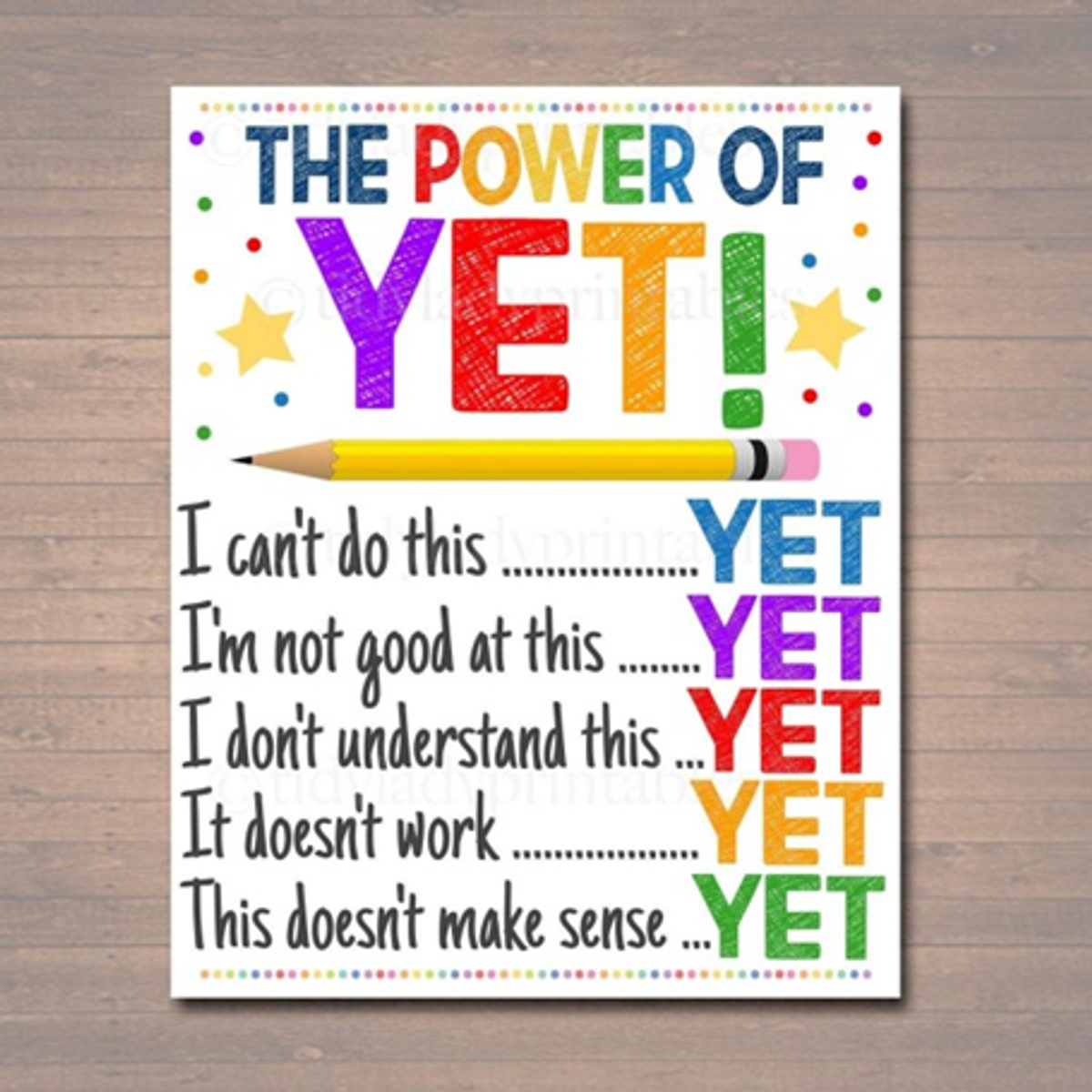Wellbeing MATTERS!

Wellbeing MATTERS!
Dear Families,
How to empower kids to think positively with a simple swap in vocabulary
by KARA CARRERO community@karacarrero.com (Parenting Blog)
The number of times I hear “but” each day is astounding. In their minds not only are they making excuses, but they’re building walls. ‘They’re setting themselves up for failure without realising that even failure is a gift’.
They don’t realise that both ‘success’ and ‘failure’ are opportunities to grow and to move forward and above all to learn to persevere in rising up and overcoming (resilience).
…but I don’t want to.
…but it’s hard.
…but I can’t.
Just one word and their positive statements can turn to negativity. They discount themselves before they try and they think they know the answer to what they want before even asking.
So we banned the word “but” in effort to try to build up our kids and help them grow a positive attitude and have an optimistic growth mindset.
Other ways to Teach kids to Have a Positive Attitude
How your child deals with disappointment and frustration now will not only have an effect on their day-to-day behaviour but it will shape how they handle things later in life. It is important to teach kids to have a positive attitude when they are young if possible, but continue it throughout their life. It will become a habit, their default response to situations they wish were different.
1. Be a good example
Even if you don’t think they are, your children are always listening to you and picking up on your responses so make sure you’re setting a good example. They watch how you react to stress and how you treat difficult people and frustrating situations. They learn their own behaviour by watching yours. Make a choice to have a positive attitude and not let stress get to you. Show your kids that you can control your attitude instead of letting situations and people control your responses.
2. Be an encourager
Helping your child build their self-esteem will help them feel more confident, be happier, and hold a more positive attitude. Encourage your child and recognize their accomplishments, both big and small.
“I can see you really worked hard on this. You did a great job.”
“I appreciate your help.” “I can see you really took your time with this project and did your best work.”
A little encouragement goes a long way and demonstrates positivity to them as well.
3. Turn a negative into a positive
We all make mistakes; we all struggle with new things, when we see the positive of a situation it makes it a little easier. When your child is feeling down on themselves for something they are not good at, turn it around and remind them what they are good at. Words like “and” and “yet” can turn the situation around.
“You may not know the alphabet yet, but you’re learning and it takes time. You’ll get it.”
“I’m upset about how you behaved, but I can be angry and still love you.”
4. Strive to make your home a happy place
Set the mood for your home with your behaviour and actions. Make your home a place of acceptance, a safe place to be who you are, and fill it with love and laughter.
Laughter has a positive effect on your attitude so encourage your kids to do it often with silly dances, funny stories, and jokes. When they’re happy and laughing, they’ll naturally be more positive and respond in a more positive manner to stressful situations.
5. Offer explanations
Words and phrases like “no” and “because I said so” don’t teach positive behavior because they don’t point out what’s wrong. Instead, try saying no without saying “no.”
For instance, “I know you love cookies, eating too many will make your tummy hurt.”
“I can’t understand you when you’re whining. Try telling me what you want in your regular voice.” “Don’t touch that, it’s hot and you could hurt yourself.”
Explaining to your child why they can’t do something will help them have a more positive response to your action.
Another simple way that can be promoted to get that positive mindset, is the power of the word YET!!!! In essence the word means a realisation that some things are worth waiting for, and those things take work. It’s not always easy, but the power of this small word allows for success. Changing your words can help students begin to make the change from a fixed to a growth mindset.
What if instead of your students saying “I can’t do this”, they said “I can’t do this yet”?
What if instead of your students saying “I’m not good at this”, they said “I’m not good at this yet”?
What if instead of your students saying “I don’t understand this”, they said “I don’t understand this yet”?
What if instead of your students saying “It doesn’t work”, they said “It doesn’t work yet”?
What if instead of your students saying “this doesn’t make sense”, they said “this doesn’t make sense yet”?
What kind of classroom climate do you feel with the added yet? Do you picture a classroom filled with students that believe in how much they can grow? A classroom filled with confident students willing to take risks and try new things? This shift in focus can lead students to behave differently in the classroom. This tiny word can have a huge impact on a student's perseverance, because they realize that they need to put in effort in order to ‘get it’. It encourages students not to give up when they make a mistake , and help them grow to become more resilient.
These simple three letter words have so much power! How good would it be if we could all think in terms of a positive mindset and apply it to our learning and living everyday life.
Praise Effort Not Attainment
Often when a child is struggling, an adult responds by telling them that they can accomplish the task because they are “smart”. We need to be careful saying this, as there is actually a lot of risk in using this word too much. Children who hear how “smart” they are all the time tend to fear doing anything that might go against that notion. They often avoid pushing themselves, shy away from challenges, and fear making mistakes.
We need to praise children for their effort, strategies, progress, hard work, persistence, learning from past mistakes, and rising to the challenge, instead of telling them how smart they are, praising them for being born gifted, or congratulating them for not making mistakes. We need to remind children that mistakes help them improve, that they learn from mistakes, and that if something doesn’t work, they can try another way to solve the problem. It is also imperative to set a good example, and be mindful of our own thinking, words, and actions.
Remember to lead by example. Talk with a positive, growth mindset, and make sure to use the word yet in frustrating situations. The sky's the limit!
Please feel free to contact me if you have any concerns or queries.
Debbie Turvey
Pastoral Wellbeing & Learning Diversity Leader
dturvey@shtatura.catholic.edu.au
(03) 5824 1841
Stay tuned in our school newsletter for more ideas and conversations around promoting wellbeing and learning in our school community.
Have a great week, make the choice, be your best!



